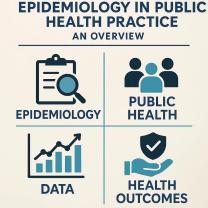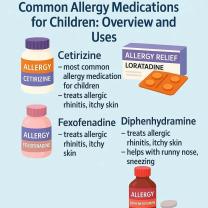Why is left ventricular hypertrophy bad?
Left ventricular hypertrophy (LVH) is a condition characterized by the thickening of the heart's left ventricle, which is responsible for pumping oxygenated blood to the body. While LVH is the heart's natural response to increased workload or pressure, it can have negative implications for cardiac health when it becomes pathological or excessive. Here are some reasons why LVH is considered bad and a risk factor for cardiovascular problems:
Impaired Cardiac Function: The thickening of the left ventricle's walls reduces the chamber's ability to relax and fill with blood properly. As a result, the heart may struggle to pump blood effectively, leading to decreased cardiac output.
Increased Risk of Heart Failure: Over time, the increased workload on the heart can lead to heart failure. The heart may not be able to meet the body's demands for oxygenated blood, causing symptoms like fatigue, shortness of breath, and fluid retention.
Risk of Arrhythmias: LVH can disrupt the heart's electrical system, increasing the risk of arrhythmias (abnormal heart rhythms). These irregular heartbeats can be life-threatening in some cases.
Hypertension Complications: High blood pressure (hypertension) is a common cause of LVH. The combination of LVH and hypertension significantly raises the risk of cardiovascular events such as heart attacks and strokes.
Ischemia and Reduced Blood Supply: The thickened heart muscle can compress the coronary arteries, reducing blood supply to the heart muscle itself. This condition, known as myocardial ischemia, can lead to chest pain (angina) and increases the risk of a heart attack.
Heart Valve Problems: LVH can lead to heart valve problems, such as aortic stenosis (narrowing of the aortic valve), which further impairs the heart's ability to pump blood effectively.
Sudden Cardiac Death: In severe cases of LVH, there is an increased risk of sudden cardiac death, often related to arrhythmias and other cardiac complications.
Reduced Exercise Tolerance: People with LVH may experience reduced exercise tolerance and may have difficulty engaging in physical activities, which can negatively impact their overall health and quality of life.
Stroke Risk: LVH, especially when associated with other risk factors like hypertension, can increase the risk of blood clots forming in the heart chambers and being released into the bloodstream, potentially leading to a stroke.
Cardiovascular Events: LVH is a known risk factor for various cardiovascular events, including heart attacks, strokes, and other complications, making it a significant concern for overall cardiac health.
It's important to note that not all cases of LVH are harmful or pathological. Some individuals, particularly athletes, may develop physiological or adaptive LVH as a result of regular exercise and training. However, pathological LVH, often associated with conditions like hypertension, aortic stenosis, or other heart diseases, can have serious consequences and should be monitored and managed by healthcare professionals. Early detection and appropriate treatment are crucial in managing LVH and reducing its associated risks.
Left Ventricular Hypertrophy: What Makes It a Concern?
Left ventricular hypertrophy (LVH) is a condition in which the wall of the left ventricle, the main pumping chamber of the heart, thickens. This can make it harder for the heart to pump blood and can lead to a number of serious health problems.
LVH is a concern because it can increase the risk of:
- Heart failure
- Arrhythmias (irregular heartbeats)
- Sudden cardiac death
The Impact of LVH on Heart Health and Function
LVH can have a significant impact on heart health and function. The thickened heart muscle may not be able to pump blood as efficiently, which can lead to heart failure. LVH can also increase the risk of arrhythmias, which can be life-threatening.
In addition, LVH can damage the heart muscle and lead to other heart problems, such as coronary heart disease and valvular heart disease.
Causes and Risk Factors for Left Ventricular Hypertrophy
LVH can be caused by a number of factors, including:
- High blood pressure
- Heart disease
- Valvular heart disease
- Congenital heart defects
- Hypertrophic cardiomyopathy
- Amyloidosis
- Aortic stenosis
- Acromegaly
- Pheochromocytoma
- Chronic kidney disease
- Obesity
- Diabetes
- Sleep apnea
- Smoking
Diagnosis, Treatment, and Prevention of LVH
LVH is typically diagnosed with an echocardiogram, which is a type of ultrasound that uses sound waves to create images of the heart. Other tests that may be used to diagnose LVH include:
- Electrocardiogram (EKG)
- Chest X-ray
- Magnetic resonance imaging (MRI)
Treatment for LVH depends on the underlying cause. If LVH is caused by high blood pressure, treatment will focus on lowering blood pressure. If LVH is caused by another condition, such as heart disease or valvular heart disease, treatment will focus on treating that condition.
There are also a number of things that people can do to help prevent LVH, such as:
- Maintaining a healthy weight
- Eating a healthy diet
- Exercising regularly
- Avoiding smoking
- Managing stress
Raising Awareness and Promoting Heart Health in Relation to LVH
LVH is a serious condition, but it is important to remember that it is often preventable. By raising awareness of LVH and promoting heart health, we can help people to reduce their risk of developing this condition.
Here are some ways to raise awareness and promote heart health in relation to LVH:
- Talk to your doctor about your risk of LVH and what you can do to reduce your risk.
- Encourage your friends and family to talk to their doctors about LVH.
- Share information about LVH on social media and with your community.
- Support organizations that are working to raise awareness of LVH and promote heart health.
By taking these steps, we can help to reduce the number of people who develop LVH and improve the overall health of our communities.











